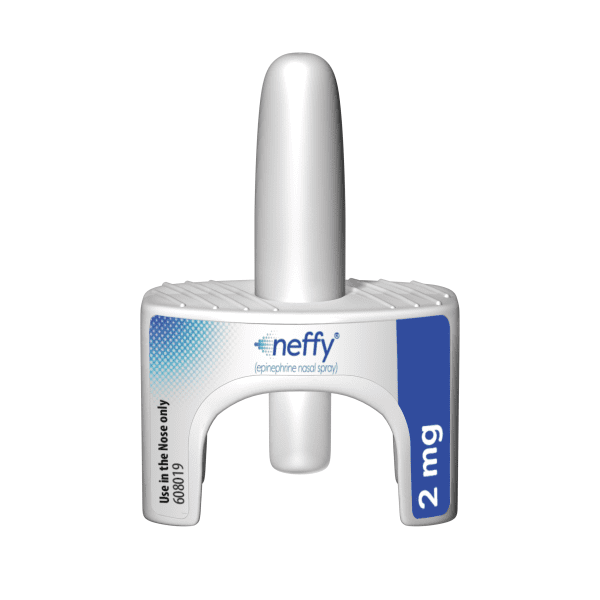Neffy Interactions
There are 230 drugs known to interact with neffy (epinephrine), along with 5 disease interactions, and 1 alcohol/food interaction. Of the total drug interactions, 37 are major, 191 are moderate, and 2 are minor.
- View all 230 medications that may interact with neffy
- View neffy alcohol/food interactions (1)
- View neffy disease interactions (5)
Most frequently checked interactions
View interaction reports for neffy (epinephrine) and the medicines listed below.
- acyclovir
- Advil (ibuprofen)
- albuterol
- amlodipine
- ashwaganda
- Aspir 81 (aspirin)
- Atarax (hydroxyzine)
- atorvastatin
- azelastine nasal
- benzonatate
- clobetasol topical
- cromolyn
- doxycycline
- famotidine
- Flonase (fluticasone nasal)
- ibuprofen
- Lexapro (escitalopram)
- losartan
- mupirocin topical
- prednisone
- propranolol
- Quercetin (bioflavonoids)
- trazodone
- Tylenol (acetaminophen)
- valacyclovir
- Valium (diazepam)
- Vitamin C (ascorbic acid)
- Vitamin D3 (cholecalciferol)
- Voltaren Arthritis Pain Gel (diclofenac topical)
- Zyrtec (cetirizine)
Neffy alcohol/food interactions
There is 1 alcohol/food interaction with neffy (epinephrine).
Neffy disease interactions
There are 5 disease interactions with neffy (epinephrine) which include:
More about neffy (epinephrine)
- neffy consumer information
- Compare alternatives
- Pricing & coupons
- Drug images
- Latest FDA alerts (3)
- Side effects
- Dosage information
- During pregnancy
- FDA approval history
- Drug class: adrenergic bronchodilators
- Breastfeeding
- En español
Related treatment guides
Drug Interaction Classification
| Highly clinically significant. Avoid combinations; the risk of the interaction outweighs the benefit. | |
| Moderately clinically significant. Usually avoid combinations; use it only under special circumstances. | |
| Minimally clinically significant. Minimize risk; assess risk and consider an alternative drug, take steps to circumvent the interaction risk and/or institute a monitoring plan. | |
| No interaction information available. |
See also:
Further information
Always consult your healthcare provider to ensure the information displayed on this page applies to your personal circumstances.


